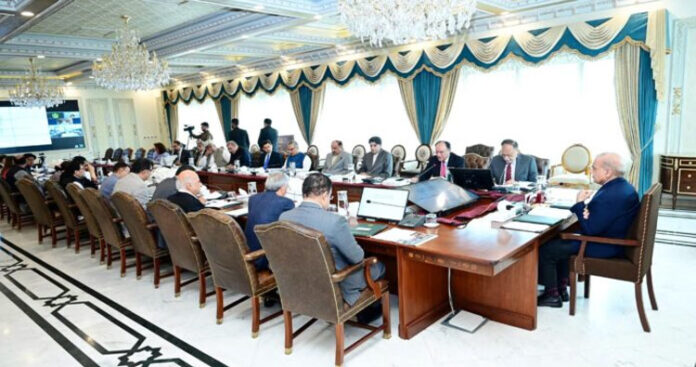
In a bid to streamline the federal government’s operations and reduce public sector expenditures, the Cabinet Committee on Institutional Reforms has recommended the curtailment of 150,000 vacant positions across various government departments. The committee, chaired by Prime Minister Shahbaz Sharif, also proposed banning contingency recruitment and outsourcing non-core services such as cleaning and janitorial work. These measures aim to gradually phase out numerous positions in grades 1 to 16, thereby reducing the financial burden on the national treasury.
Key Recommendations and Proposed Reforms
The committee’s recommendations are part of a broader initiative to right-size the federal government. During the meeting, the Ministry of Finance was tasked with overseeing the cash balances of other federal ministries, ensuring efficient use of resources. The committee presented a detailed briefing to the Prime Minister on the proposed reforms for five specific federal ministries: the Ministry of Kashmir Affairs and Gilgit-Baltistan, the Ministry of State and Frontier Regions (SAFRON), the Ministry of Information Technology and Telecommunication, the Ministry of Industry and Production, and the Ministry of National Health Services.
Merger of Ministries and Institutional Downsizing
One of the significant proposals put forth by the committee is the merger of the Ministry of Kashmir Affairs and Gilgit-Baltistan with the Ministry of State and Frontier Regions (SAFRON). This merger aims to streamline operations and reduce redundancy between the two ministries. Additionally, the committee has suggested closing 28 institutions across the five ministries under review, transferring the Ministry of Privatization and other select ministries to federal units, and merging 12 institutions within these ministries.
Focus on Cost-Cutting and Efficiency
Prime Minister Shehbaz Sharif emphasized that the primary goal of these reforms is to reduce government expenditure and enhance the quality of public services. He instructed the committee to submit the proposed reforms to the Federal Cabinet for approval and to present a comprehensive plan for their implementation. The Prime Minister also highlighted the importance of targeting institutions that fail to deliver adequate public service performance, noting that such institutions should either be terminated or privatized promptly to alleviate the financial strain on the national exchequer.
Strengthening Support for SMEs
In addition to the broader institutional reforms, PM Shehbaz Sharif expressed his commitment to personally oversee the Small and Medium Enterprises Development Authority (SMEDA). Recognizing the vital role of SMEs in the country’s economic growth, he directed that SMEDA be brought under the Prime Minister’s Office for closer supervision and support. This move aligns with the government’s strategy to bolster the SME sector as a key driver of economic development.
High-Level Participation in the Reform Initiative
The meeting was attended by several high-ranking officials, including Federal Minister for Planning Ahsan Iqbal, Federal Minister for Economic Affairs Ahad Khan Cheema, Federal Minister for Finance and Revenue Muhammad Aurangzeb, Federal Minister for Industries and Production Rana Tanveer Hussain, Minister of State for Information Technology and Telecom Shaza Fatima, Minister of State for Finance Ali Pervaiz Malik, Deputy Chairman of the Planning Commission Jahanzeb Khan, Prime Minister’s Coordinator for National Health Dr. Malik Mukhtar Ahmed Bharath, and Prime Minister’s Coordinator Bilal Azhar Kayani. Their participation underscores the importance of these reforms in the government’s agenda.
The Cabinet Committee on Institutional Reforms’ recommendations mark a significant step toward reducing the size of the public sector and optimizing government operations. By curtailing vacant posts, merging ministries, and closing underperforming institutions, the government aims to create a more efficient and financially sustainable public sector. As these reforms progress, their impact on the delivery of public services and the overall fiscal health of the country will be closely monitored.
